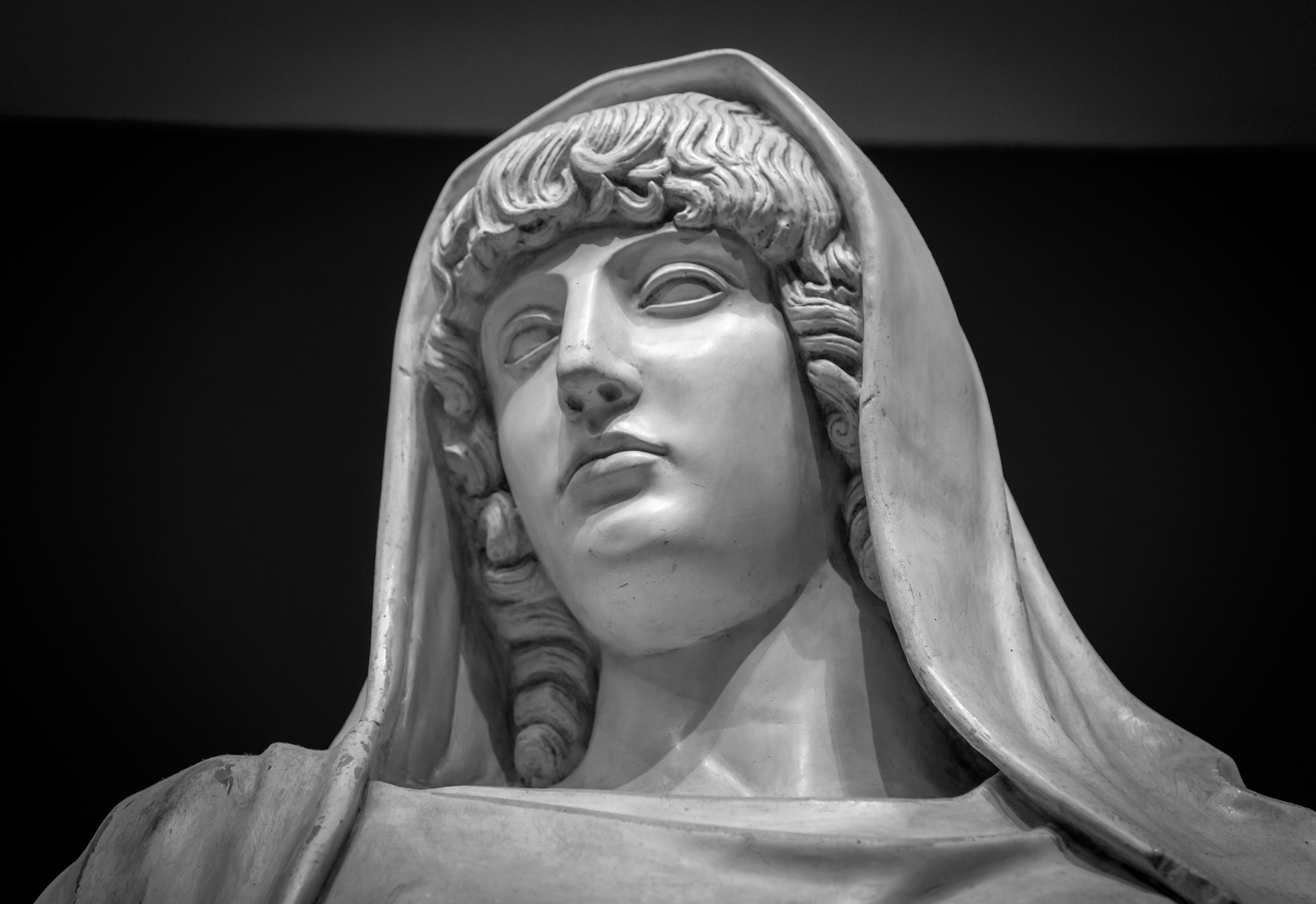The gender industry is corporate grooming for transhumanism.
The Marriage of Body and Soul

Charting a course between dualism and materialism.
Properly understanding human nature is one of the first steps toward wisdom, which in turn is the only thing that can restore a healthy civilization. Too often, however, our modern conception of the human person reflects the influence of 17th century philosopher René Descartes. Descartes famously proposed that human beings are composed of two distinct substances: a material body and an immaterial “mind” which counts more truly and finally as the ”self.” In other words, our bodies are not really a part of who we are.
As Spencer Klavan points out in his new book, How To Save the West, this “dualist” view has widely permeated the modern Western consciousness under the influence of postmodernism and third-wave feminism. It has resulted in a bifurcation of the human being, encouraging us to view our bodies as shells we can freely manipulate rather than as critical aspects of who we are. This, he argues, helps us understand growing movements like transgenderism and transhumanism, which are really two sides of the same coin: If the physical body is simply an appendage, why not reconstitute it at will, by either surgery or technology? “What’s going on here is bigger than gender: we are dreaming not simply of making men into women, and vice versa, but making ourselves into anything, at a whim,” writes Klavan. This, then, is our crisis of the body.
Unfortunately, the “materialist” view of the person, which is the popular alternative to the “dualist” one, fares no better. Materialism holds that the human being is simply a bundle of physical matter—fundamental particles in motion, nothing more. But if that is all we are, then things like desires, virtues, meaning, morality—even consciousness itself—are simply illusions. And if that is the case, if there is nothing “objective” to any of the things we hold dear or consider essential, then we suffer from far more than simply a crisis of the body.
In fact, Klavan demonstrates that creeping materialism has destroyed our grasp of reality, which in turn has poisoned our sense of meaning and our drive toward religion. It has even, and by consequence, caused our politics to fray.
The good news, however, is that Klavan also notes a way out. It begins by reembracing ancient wisdom going back to Aristotle.
Unlike the “dualist” and “materialist” views described above, Aristotle held that the human being is neither an immaterial “self” who inhabits a body (dualism) nor a physical body alone (materialism), but rather a body-soul composite. The soul for Aristotle was not some sort of ghost that resides behind our eyes and simply pilots our bodies. Rather, the soul as he understood it is the body’s formal cause—the thing which organizes its parts, and the realization of their potential. It is, in other words, what drives and organizes the body’s life.
What this all means is that, contrary to the transgender and transhuman movements, our bodies are in fact crucial dimensions of who we are as human beings. Summing it up, Klavan puts it this way: “To be fully human…is to be two things in one—both animal and rational, body and soul.”
Furthermore, this ancient wisdom is not limited to helping us regain a proper grasp of our identities. As Klavan shows throughout the book, both pagan philosophers such as Socrates, Plato and Aristotle, as well as various thinkers within the Judeo-Christian tradition, can help us recover the fullness of reality that Western modernity has lost. This includes truth, goodness, and beauty—all of which find their source in God. And while the reader will not find any “knockdown” arguments for God’s existence in this book, he will find the truth, beauty, and goodness in its pages too attractive to put down.
For that, Klavan’s book is well worth a read.
The American Mind presents a range of perspectives. Views are writers’ own and do not necessarily represent those of The Claremont Institute.
The American Mind is a publication of the Claremont Institute, a non-profit 501(c)(3) organization, dedicated to restoring the principles of the American Founding to their rightful, preeminent authority in our national life. Interested in supporting our work? Gifts to the Claremont Institute are tax-deductible.
The conquest of the body has not been as equitable as advertised.
Transhumanism is man's latest destructive attempt to obtain the unobtainable.
Digital Gnostics and the flight from embodied personhood.
Age dysphoria is the real dysphoria that's coming for us all.
The political solution to our gender neuroses is to reject the Left’s categories altogether.






